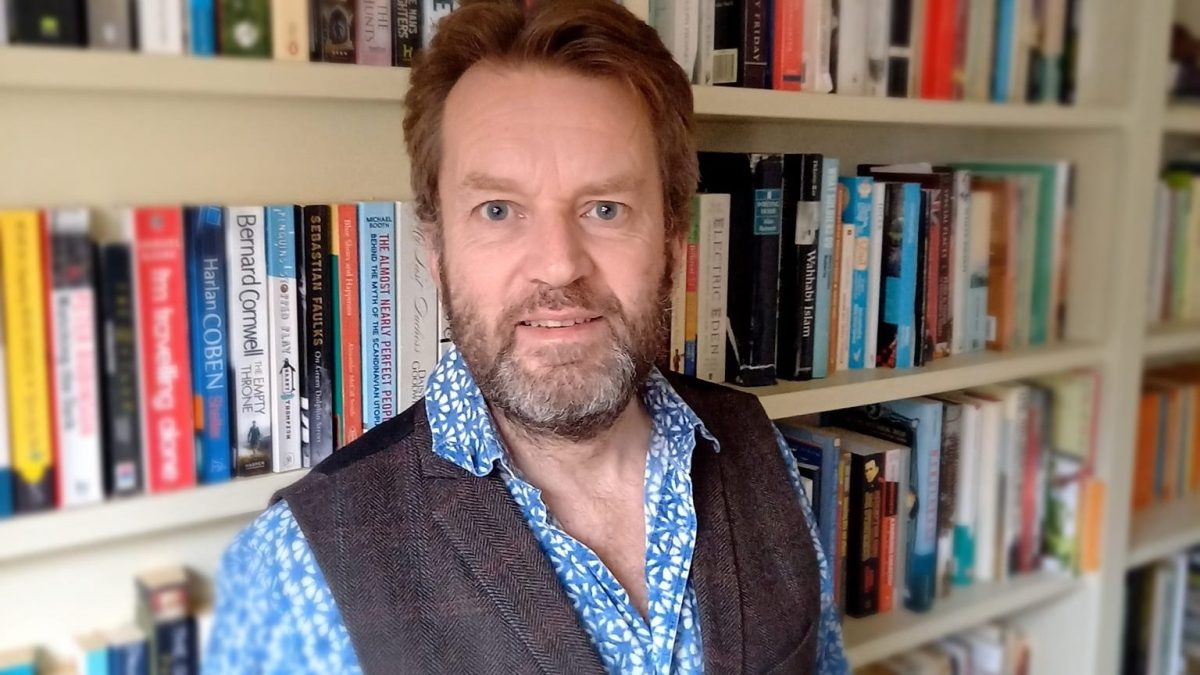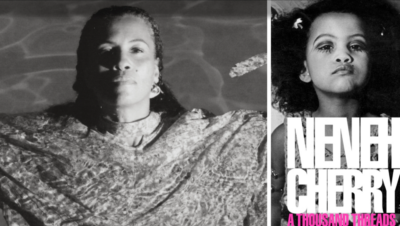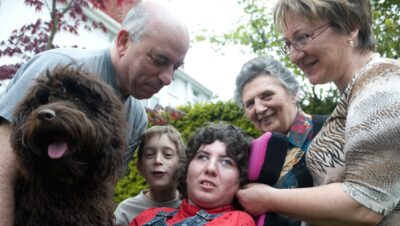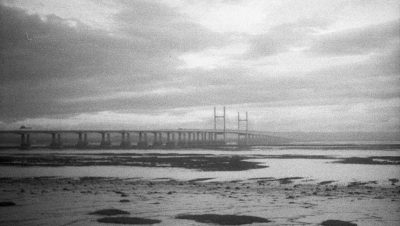Books / ghostwriting
The prolific author you’ve never heard of: Tom Henry talks ghostwriting
Ahead of our chat, Tom Henry greets me with a warm smile and – apologetically – orders a cup of tea.
Formerly based in Bristol, he swapped the city for village life over a decade ago and now lives half an hour outside the city, where he works primarily as a freelance writer.
Cutting his teeth in journalism in the 1990s and early 2000s, he has, as he puts it, been “working with words” for over 30 years, although his practice these days extends to mentoring, teaching and speaking at schools, universities and book groups.
is needed now More than ever
Today, we’re meeting primarily to discuss his wide-ranging experience as a ghostwriter – which has seen him write an astonishing 26 books, at the last count. But I’m keen to dig into the impetus behind this bold change in direction.
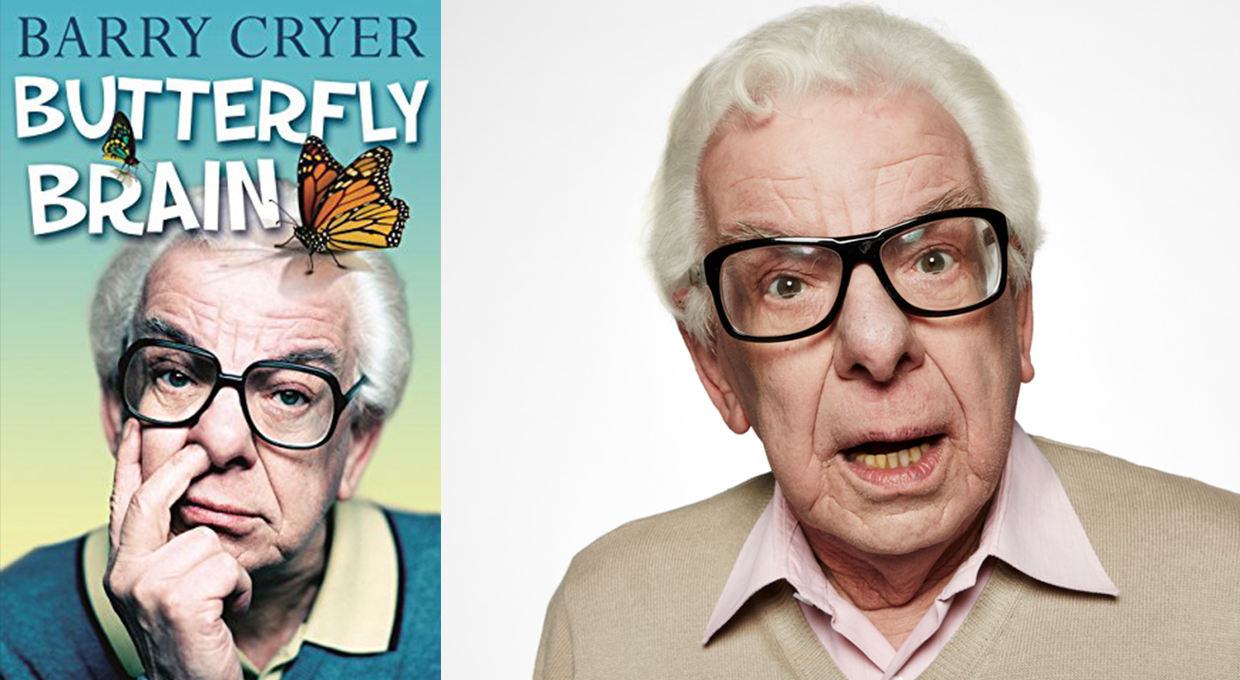
Barry Cryer, Butterfly Brain – photo: Orion Books
Following early stints as a reporter for regional papers in Lancaster and Portsmouth, Henry relocated to Bristol in 1999 and landed a job on a news desk at the Western Daily Press, before moving over to the features department at the Bristol Evening Post – his working home for the ensuing five years.
“It was longer form, much more fun and varied, and it really suited me”, he admits. But a few years on, the outlook was beginning to look starker. “They were starting to talk about job cuts”, he tells me.
For Henry, the twin factors of increased job insecurity and the concurrent rise of Internet were indicative of an uncertain, and perhaps unhappier future in journalism. So, when a redundancy package was offered, he was moved to accept it.
As to where he would go next, things were far from clear. “I left”, he reflects, “and went freelance, without really having a plan”.
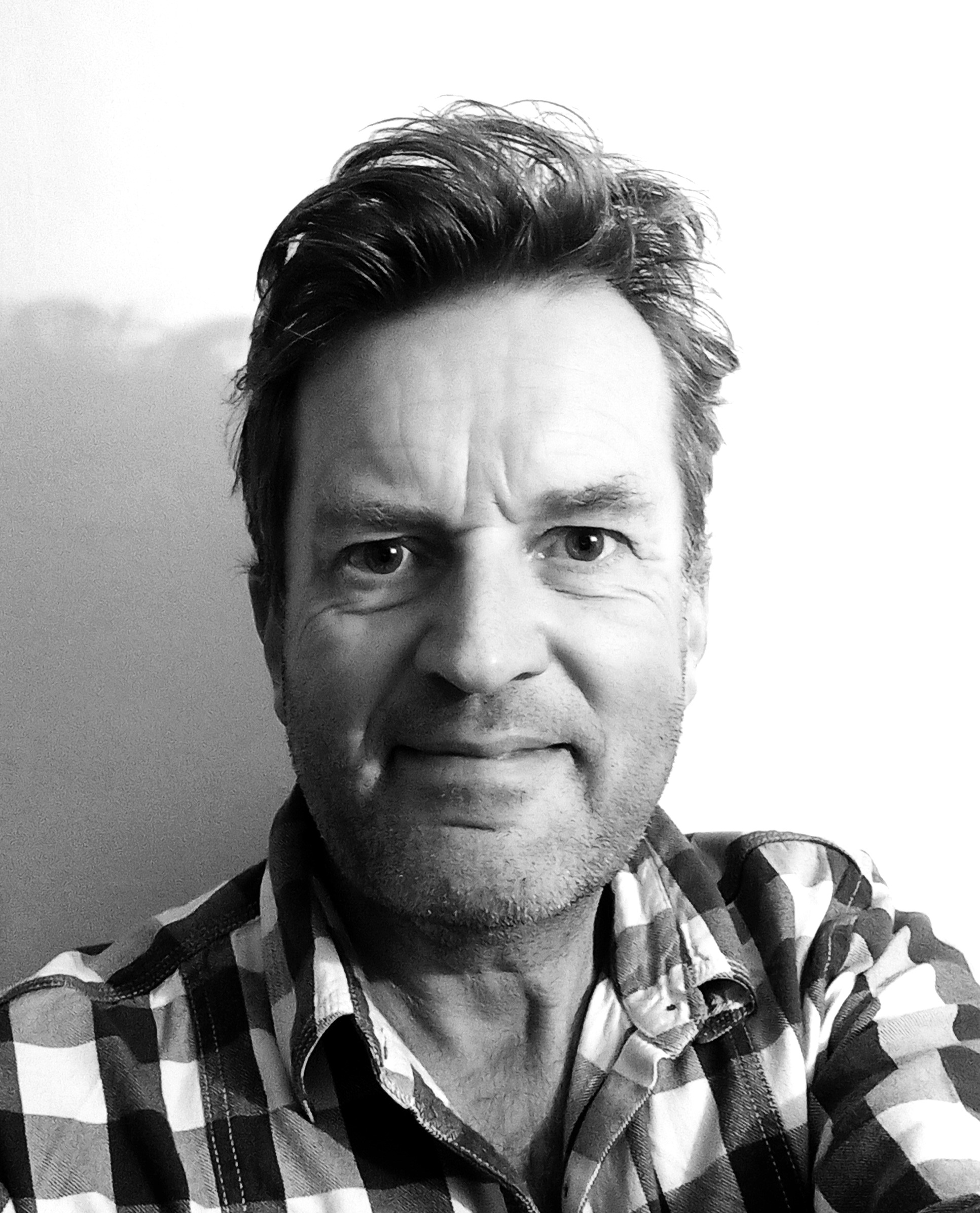
Tom Henry – photo: courtesy of the author
After a brief foray into travel writing, Henry was contacted by a former colleague, who had been asked to ghostwrite a book about an ailing organic farm run by a brother and sister. “He told me it had been commissioned, but that the publication was due to coincide with the birth of his first child, which was a step too far. And he said, ‘do you fancy it?’”
Having met the siblings and the prospective publisher, Henry decided to take a chance on it – facing up to a punishing 80,000-word deadline in just three months.
“A couple of weeks later I found myself on a really run down farm in the middle of Shropshire, in a freezing cold caravan, sharing a bench with a bunch of chickens that were wandering in and out. And I thought ‘what on earth am I doing?’”
He soon realised that success might be contingent on reframing the enormity of the task. “I looked at it as one very long feature article, and didn’t panic about it. In your naivety you just do these things sometimes. I didn’t overthink it.”
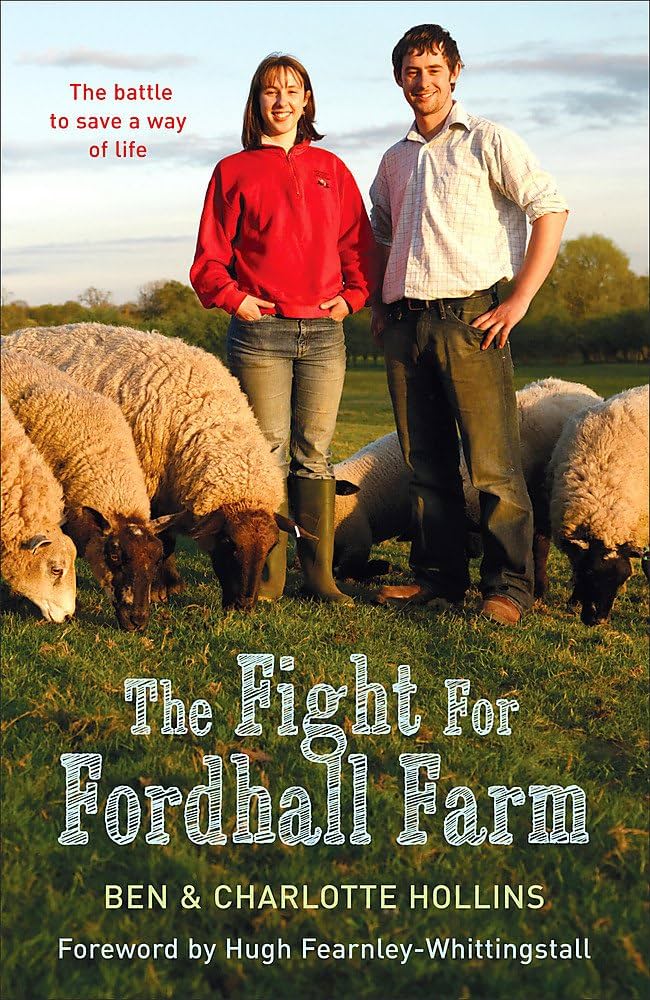
The Fight for Fordhall Farm, Ben and Charlotte Hollins – photo: Hodder and Stoughton
Not only did Henry enjoy the relative freedom of the long-form narrative, but he found the creative process itself to be enormously rewarding. “I took this great stack of interview cassette tapes away and started to write”, he recalls. “I think that especially if you’ve read a lot as a kid – even if you’ve not written before – somehow or other that storytelling just gets into you. And with this, straightaway I began to feel like I was writing a novel, full of characterisation, speech and description – and it all started to come together.”
That book went on to be nominated for an environmental campaigning award. Henry remembers watching the two young farmers discussing it on Richard and Judy. It was an important realisation for him. “I was watching them thinking ‘is this their book or my book?’”, he says. “But then I thought ‘no, of course it’s their bloody book!’, and I really did feel alright about it. I also started to see that maybe I could make something out of this ghostwriting project. And it just went from there.”
In the intervening 20 years, he has brought a wild array of books to fruition, travelling the world in the process. From Jayne Senior’s searing account as the whistleblower in the infamous Rotherham abuse scandal, to John Chambers’ memoir of a child caught up in 70s and 80s Northern Irish sectarianism, he has also ghostwritten celebrity memoirs, including those of the world-famous snooker player, Stephen Hendry, and the late comic and raconteur Barry Cryer.
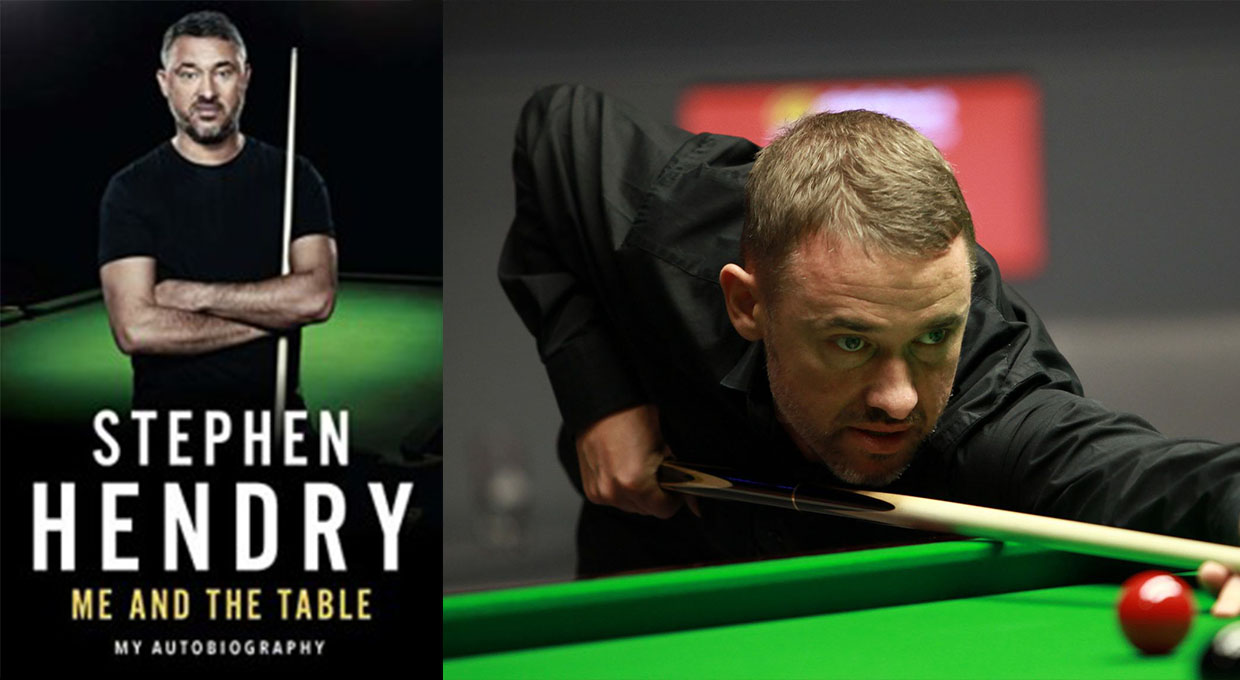
Steven Hendry, Me and The Table, My Autobiography – photo: John Blake
For Henry, the most energising lives to capture on a page are those of ordinary people, with extraordinary stories. “My ideal person is the man or woman in the street, who really tells you what their life has been about, and takes your breath away”, he considers. “I can give them a validation of their experience, and of the difficulties they went through. That’s really the most rewarding part of this job.”
As we talk, Henry’s warmth and lack of ego is very apparent. He sees himself as the writer but not the author: crucial to the story, but not the owner of it. In other words, the role is analogous to a midwife, albeit a literary one. And beyond getting a narrative down on paper, when it comes to truly inhabiting someone else’s voice, his real skill, he tells me, is to listen.
“Knowing when to shut up, when to interject, when to intervene; the ears are easily as important as the hand, if not more so”, he admits. Evidently, the intensity of the process can be acute, especially when drawing out personal or painful memories from someone, with sensitivity and at a pace they can handle.
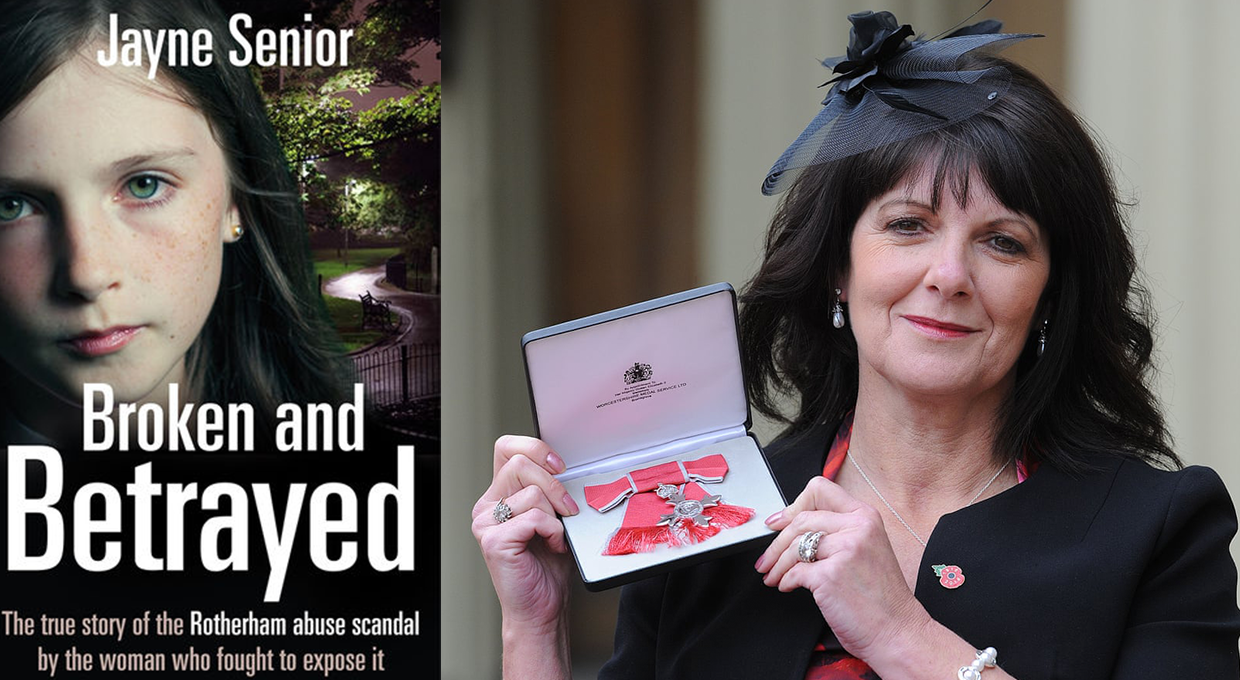
Jayne Senior, Broken and Betrayed – photo: Pan Macmillan
I draw a comparison to psychotherapy, where the thornier issues are often the subjects you need to go towards. “Exactly”, Henry nods. “That is often the nub of the story. You have to be vulnerable. And it often happens that people get very upset; they need a moment, and there’s a push/pull about it. I will say ‘do you want to carry on? Are you alright? Shall we leave this for today, and return to it tomorrow?’ But I never say ‘let’s not talk about that’, because that’s the thing that we need to talk about more than anything else.”
When the interview process – which often requires multiple sittings – is concluded, Henry will have amassed a wealth of source material from which to work. But rather than just sitting down to write, there is what he calls “a weird element of performance” to his writing process.
“It sounds ridiculous but I often stand up and talk a scene out”, he says. “You’ve got to take on someone’s character because you’re writing in the first person. So you have to think about what they’re thinking, and act how they would act: you’ve got to be them.”
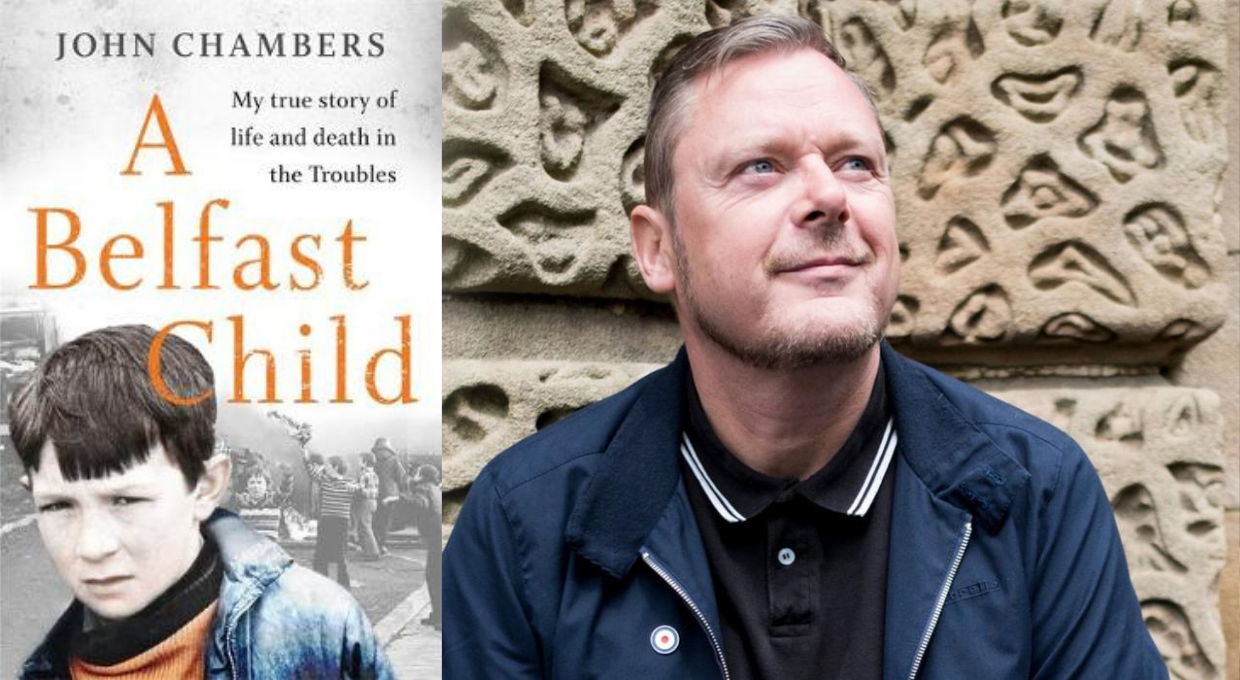
John Chambers, A Belfast Child – photo: John Blake
It strikes me that not only is this mercurial approach essential for an enduring career as a ghostwriter, but for Henry – who recalls loving drama as a child – the ‘method acting’ of it is a huge part of the appeal. “I’d have liked to have worked in the theatre”, he muses, before adding, in characteristically modest fashion – “although maybe I would have been the person serving the ice cream halfway through”.
Certainly, the “ventriloquist’s trick” of first giving people a voice, and then amplifying it, feels theatrical. “A little bit of dramatic insight, or a bit of thwarted ambition is very handy in this job”, he concedes. “Redirected ambition!” I insist.
Amongst his other creative pursuits, Henry is a lifelong music fan, and has been in bands for years. As we finish chatting, it doesn’t surprise me to learn that thesedays, he also moonlights in a successful Pogues tribute band. “Tom,” I ask, “are you telling me you are in fact Shane MacGowan?” The ensuing grin tells me the answer.
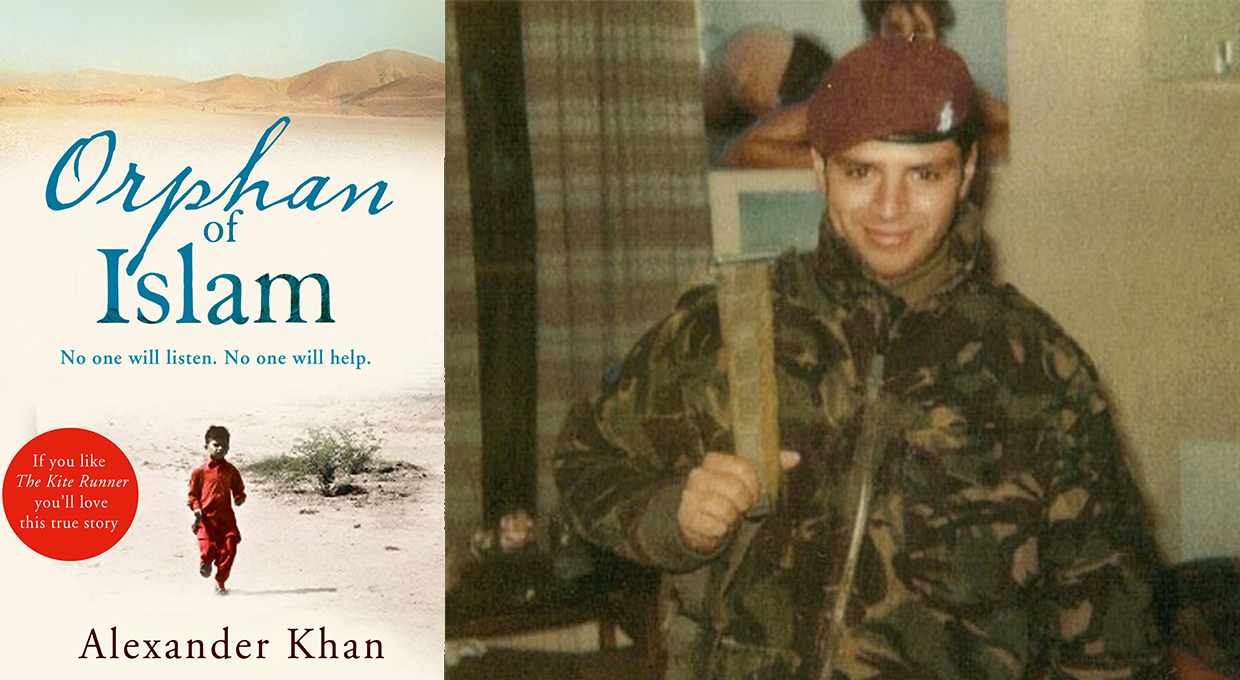
Alexander Khan, Orphan Of Islam – photo: HarperCollins
For more information about Tom’s wide-ranging work, visit www.ukghostwriter.co.uk.
Main photo: Tom Henry
Read next:
- ‘There is no better sound than hysterical gorilla laughter’: Alan Toyne on being a surrogate parent to baby gorillas
- Bristol author Lottie Jackson publishes memoir tackling the stigma surrounding disability
- ‘Sins of My Father’ – a ‘brutally honest’ insight into an atypical father-daughter relationship
 Our newsletters emailed directly to you
Our newsletters emailed directly to you